第44章 Chapter 15(1)
When, in the course of our tour of inspection, we came to the library, we succumbed to the temptation of the luxurious leather chairs with which it was furnished, and sat down in one of the book-lined alcoves to rest and chat awhile.[3]
[3] I cannot sufficiently celebrate the glorious liberty that reigns in the public libraries of the twentieth century as compared with the intolerable management of those of the nineteenth century, in which the books were jealously railed away from the people, and obtainable only at an expenditure of time and red tape calculated to discourage any ordinary taste for literature.
"Edith tells me that you have been in the library all the morning," said Mrs. Leete. "Do you know, it seems to me, Mr. West, that you are the most enviable of mortals.""I should like to know just why," I replied.
"Because the books of the last hundred years will be new to you," she answered. "You will have so much of the most absorbing literature to read as to leave you scarcely time for meals these five years to come. Ah, what would I give if I had not already read Berrian's novels.""Or Nesmyth's, mamma," added Edith.
"Yes, or Oates' poems, or `Past and Present,' or, `In the Beginning,' or--oh, I could name a dozen books, each worth a year of one's life," declared Mrs. Leete, enthusiastically.
"I judge, then, that there has been some notable literature produced in this century.""Yes," said Dr. Leete. "It has been an era of unexampled intellectual splendor. Probably humanity never before passed through a moral and material evolution, at once so vast in its scope and brief in its time of accomplishment, as that from the old order to the new in the early part of this century. When men came to realize the greatness of the felicity which had befallen them, and that the change through which they had passed was not merely an improvement in details of their condition, but the rise of the race to a new plane of existence with an illimitable vista of progress, their minds were affected in all their faculties with a stimulus, of which the outburst of the mediaeval renaissance offers a suggestion but faint indeed. There ensued an era of mechanical invention, scientific discovery, art, musical and literary productiveness to which no previous age of the world offers anything comparable.""By the way," said I, "talking of literature, how are books published now? Is that also done by the nation?""Certainly."
"But how do you manage it? Does the government publish everything that is brought it as a matter of course, at the public expense, or does it exercise a censorship and print only what it approves?""Neither way. The printing department has no censorial powers. It is bound to print all that is offered it, but prints it only on condition that the author defray the first cost out of his credit. He must pay for the privilege of the public ear, and if he has any message worth hearing we consider that he will be glad to do it. Of course, if incomes were unequal, as in the old times, this rule would enable only the rich to be authors, but the resources of citizens being equal, it merely measures the strength of the author's motive. The cost of an edition of an average book can be saved out of a year's credit by the practice of economy and some sacrifices. The book, on being published, is placed on sale by the nation.""The author receiving a royalty on the sales as with us, Isuppose," I suggested.
"Not as with you, certainly," replied Dr. Leete, "but nevertheless in one way. The price of every book is made up of the cost of its publication with a royalty for the author. The author fixes this royalty at any figure he pleases. Of course if he puts it unreasonably high it is his own loss, for the book will not sell.